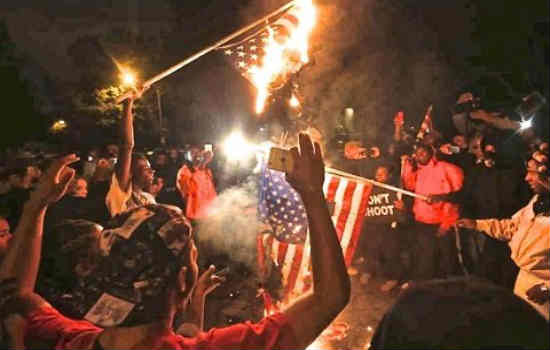President-elect Donald Trump announced Monday, via Twitter, that he supports civil penalties for those who burn the American flag. Specifically, he called for one year of imprisonment, or loss of citizenship, for those that burn Old Glory.
Nobody should be allowed to burn the American flag – if they do, there must be consequences – perhaps loss of citizenship or year in jail!
— Donald J. Trump (@realDonaldTrump) November 29, 2016
Reactions were mixed across the political spectrum. Initial gasps of horror from liberal camps turned into laughter by conservatives when it was revealed that then-Sen. Hillary Clinton sponsored a bill to outlaw burning the American flag in 2005.
In 1989 the U.S. Supreme Court overturned a Texas law banning desecration of the flag in its Texas v. Johnson decision. The anti-American in question at the time was indeed a communist white man. Today that scenario would likely include not only white, but black and mestizo, communists active in the #BlackLivesMatter movement, homosexual agitation groups, and illegal immigration proponents. Burning the U.S. flag has been long associated with implicitly anti-white, anti-Christian, anti-heterosexual groups.
Doubtless any such federal law would require a tremendous amount of political energy, and would immediately be litigated in federal courts, coming to the Supreme Court’s docket within one or two years. If President-elect Trump and Republicans in Congress would propose a federal ban on flag-burning, he would likely need to have appointed several stalwart conservatives to the Supreme Court before the case would be favorably decided by the Supreme Court. Alternatively, they could seek to litigate the case themselves to a Trump-appointed Supreme Court and hope to have the federal judiciary punt the issue back to the states by declaring that the First Amendment does not protect flag burning. In that event, each state would again be allowed to restrict or allow flag-burning as it did prior to the 1989 decision.
| Tweet |
|
|
|





